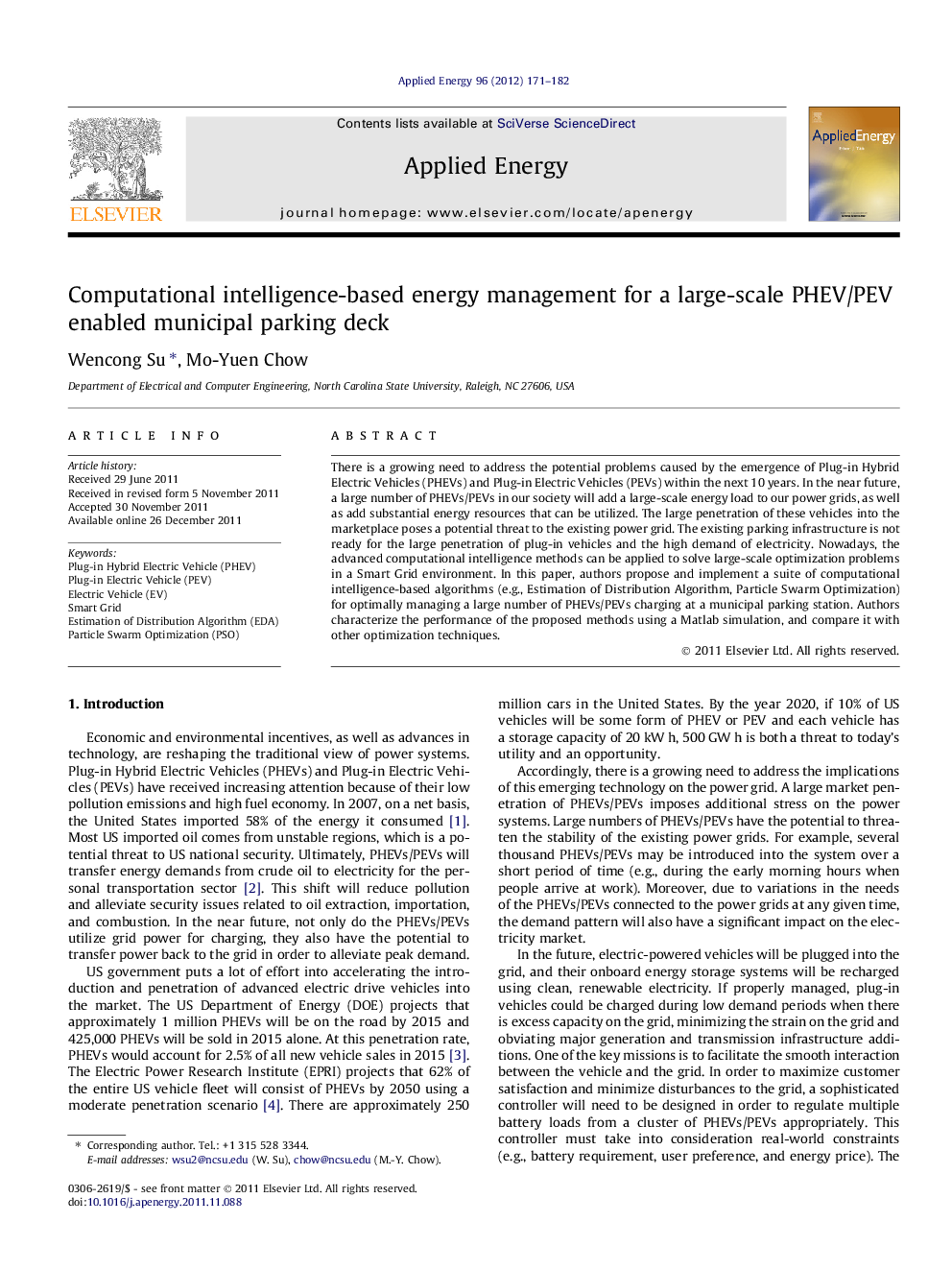| Article ID | Journal | Published Year | Pages | File Type |
|---|---|---|---|---|
| 243264 | Applied Energy | 2012 | 12 Pages |
There is a growing need to address the potential problems caused by the emergence of Plug-in Hybrid Electric Vehicles (PHEVs) and Plug-in Electric Vehicles (PEVs) within the next 10 years. In the near future, a large number of PHEVs/PEVs in our society will add a large-scale energy load to our power grids, as well as add substantial energy resources that can be utilized. The large penetration of these vehicles into the marketplace poses a potential threat to the existing power grid. The existing parking infrastructure is not ready for the large penetration of plug-in vehicles and the high demand of electricity. Nowadays, the advanced computational intelligence methods can be applied to solve large-scale optimization problems in a Smart Grid environment. In this paper, authors propose and implement a suite of computational intelligence-based algorithms (e.g., Estimation of Distribution Algorithm, Particle Swarm Optimization) for optimally managing a large number of PHEVs/PEVs charging at a municipal parking station. Authors characterize the performance of the proposed methods using a Matlab simulation, and compare it with other optimization techniques.
► Describe the mathematical framework for large-scale PHEV/PEV charging control. ► Manage the highly concentrated PHEV chargers considering real-world constraints. ► Develop and implement a suite of computational intelligence-based algorithms. ► Evaluate a variety of charging scenarios and the corresponding control strategies. ► Demonstrate the effectiveness of the proposed computational intelligence approaches.
